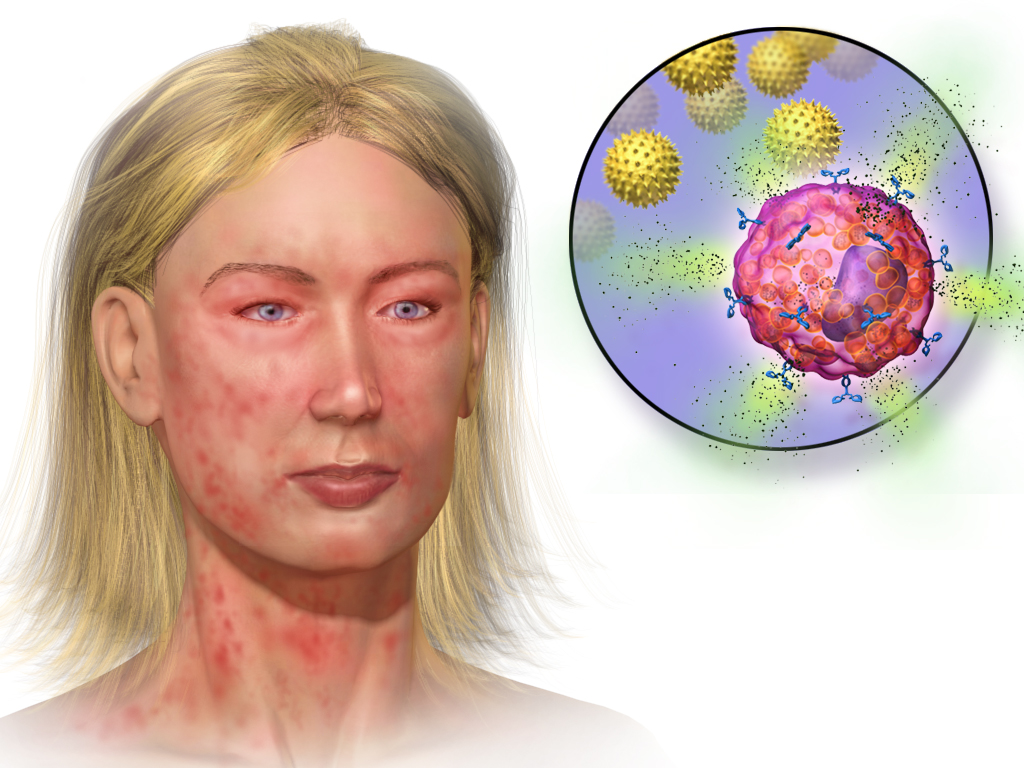
Anaphylaxis
Anaphylaxis is a severe and potentially life-threatening allergic reaction that can occur rapidly after exposure to an allergen.
Allergens are substances that can trigger an allergic reaction in some individuals. Common allergens that can lead to anaphylaxis include certain foods (such as nuts, shellfish, and eggs), insect stings or bites, medications (particularly antibiotics and certain types of pain relievers), and latex.
Symptoms of Anaphylaxis
During anaphylaxis reaction, the immune system releases a flood of chemicals, including histamine, that can cause a range of symptoms affecting various organs throughout the body.
Symptoms can include:
- breathing or shortness of breath
- Swelling of the face, lips, or tongue
- Rapid or weak pulse
- Hives or rash
- Nausea or vomiting
- Abdominal pain
- Confusion or altered mental state
- Drop in blood pressure, leading to shock


Anaphylaxis can be life-threatening
Anaphylaxis is a severe and potentially life-threatening allergic reaction that can occur rapidly after exposure to an allergen.
Anaphylaxis requires immediate medical attention, and in severe cases, it may necessitate the administration of epinephrine (adrenaline) to counteract the allergic reaction and stabilize the individual. If you suspect someone is experiencing anaphylaxis, it is crucial to seek emergency medical help immediately.

